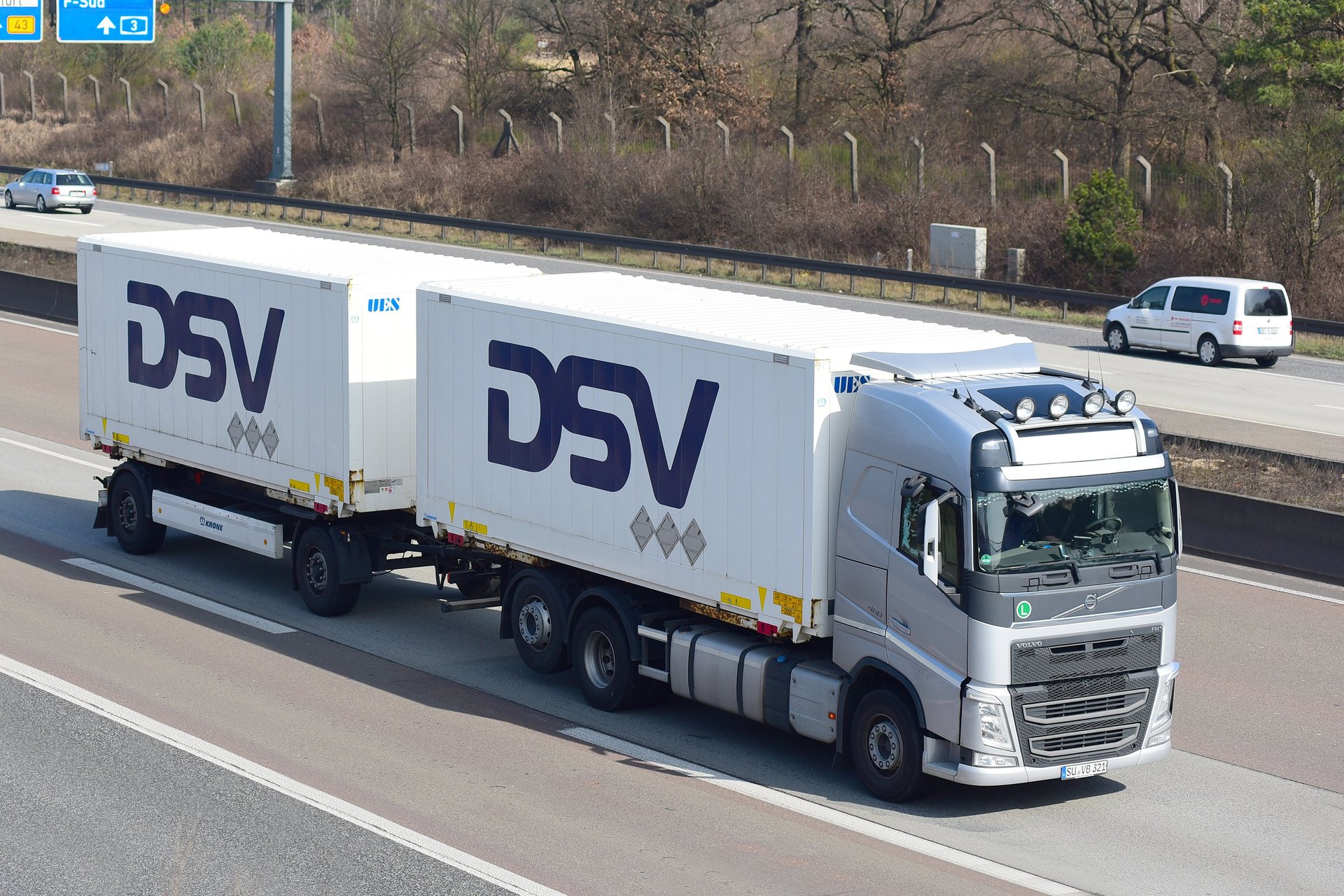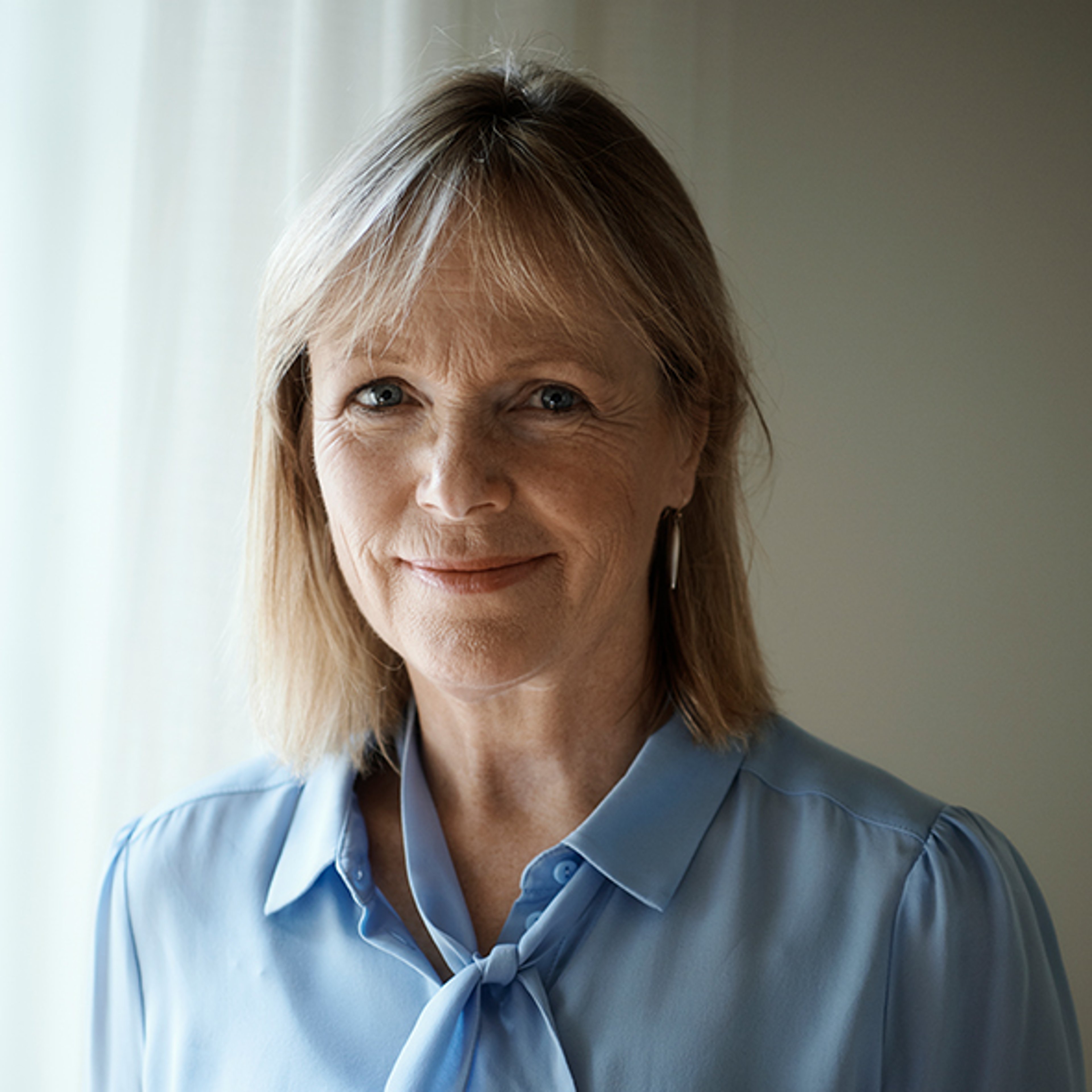Listen to this article
This audio is generated using AI

© Shutterstock / Vytautas Kielaitis
As with any investment, your capital is at risk.
In 2000, Jens Lund was an accounting whiz-kid at an investment bank hired to advise Danish logistics firm DSV on its latest acquisition.
The firm’s then chief executive was impressed. He sensed steely intelligence in the 32-year-old truck driver’s son from rural Jutland. Soon afterwards, he appointed Lund DSV’s chief financial officer.
A quarter of a century later, Lund is chief executive himself. The man described on the firm’s own website as a “hard-ass… with a low tolerance for colleagues who stand idly by” is overseeing the company’s boldest acquisition yet.
This year, DSV aims to complete its takeover of DB Schenker, the freight forwarding arm of German state railway operator Deutsche Bahn, for €14.3bn (£12bn).
It’s the biggest-ever overseas acquisition by a Danish company and one of Europe’s deals of the decade. On completion, DSV will double its 75,000 workforce and revenue in one fell swoop.
“There are two kinds of ‘serial acquirer’ we like,” says Chris Davies. “Nibblers and gobblers”.
“DSV is very much a gobbler. It will do a big, transformative acquisition every four or five years, strip out as much cost as possible and bring that business in line with its own practices and systems.
“For many companies, mergers and acquisitions (M&A) destroy value and cause investors to run for the hills. The fact that DSV has been averaging 13 per cent annual growth over the last decade shows it’s been immensely successful at it.”
Humble roots
DSV launched in 1976 as an alliance of nine humble haulers. Now, it operates in more than 80 countries. The German deal makes it the undisputed top dog in global freight forwarding, orchestrating the movement of the goods that keep our world running while largely remaining invisible to all who depend on it.
A subset of logistics, freight forwarding should not be confused with shipping – another Scandinavian speciality. Unlike Maersk or Stena, freight forwarders such as DSV and Switzerland’s Kuehne + Nagel don’t own ships, planes or trains but negotiate with those who do on behalf of customers.
Dealing in the commodity of portable empty space, they capitalise on the difference between the rates carriers charge and what customers are willing to pay.
Increasingly, they also profit from value-added services based on knowledge of their clients’ specialised needs.
“Let’s say you set up a sportswear business and want to sell your products in Japan,” Davies explains. “Where do you start? That’s where these guys come in. They will knit together a journey for that product according to your needs. For example, combining sea and air transport to achieve speed and carbon reduction.
“They orchestrate the whole process. How does this product get out of the UK? If it goes via ship, what ports does it need to stop at? What borders is it going to cross? What paperwork needs to be done? Does it need to go on a truck when it gets to its destination?”
Always improving
In a world made more complicated by pandemics, trade wars and actual wars, Davies sees DSV as having a distinct and lasting advantage.
It has proven expertise in specialised sectors with complex needs (refrigerated transport for vaccines, for example) and ploughs its profits into “making the business better and better as time goes on. That’s what competitors struggle to keep up with.”
DSV suits Davies’ investment style for two related reasons. The first is having a dependable ‘template’, or proven methodology.
In DSV’s case, that’s swallowing other companies and digesting the acquisitions, raising them to the required standard of profitability within a few quarters. This often means slashing staff numbers and consolidating separate units to create greater economies of scale than rivals can achieve.
In a fragmented market where 60 per cent of freight forwarders have less than 2 per cent market share, there are many more such deals for DSV to do.

© DSV
How easy will it be to absorb DB Schenker, a state-owned, trade-unionised company of almost equal size? “It won’t be a walk in the park,” Davies admits. But he believes the rewards could be transformative.
“DB Schenker is far less impressive performance-wise, with margins about half of DSV’s. So there are a bunch of things about the German business that will have to change to meet DSV’s standards within three years. I’m fine with that.
DSV has identified bloat, particularly on the cost side, in things such as software systems. That’s one of the areas where it’s obsessed with being best in class.”
Davies’ admiration for DSV’s methods is matched by his respect for the company’s culture, the second reason why the firm is a favourite. This is not a “warm and cuddly” company, he admits, but its focus on transparency is a distinct advantage.
“If you were the head of DSV’s German air business and I was the head of the Asian shipping business, I could see all your metrics and you could see mine. Everybody knows who’s performing and who’s underperforming. There’s a ruthlessness that is special to the company.”
‘Fit in or f*** off’
That culture and the ability to apply it to acquisitions are enshrined in the company’s unofficial slogan: FIFO. The acronym stands for ‘first in first out’ in the inventory management world. Lund turned FIFO into a new catchphrase: ‘fit in or f*** off’. His aim was “to get people’s attention and drive change”.
For Davies, this is not so much intimidating menace as evidence of the positivity that has taken DSV to the top.
“To me, FIFO reflects pride in what they do. This comes through when you meet people from different parts of the business. Their adherence to high-performance culture is a badge of honour. They’re saying: ‘This is how we operate, and we’re committed to that.’”
DSV’s dedication to stripping out costs for the benefit of shareholders and customers reminds Davies of another of his portfolio companies, Ryanair. No coincidence, he suggests, that the companies share the ability to retain talent.
Many of DSV’s senior management and employees have been at the company for years, often decades. Lund’s long service is typical. His predecessor Jens Bjørn Andersen was with the firm for 35 years and chief executive for 16.
Even after buying DB Schenker, DSV will have no more than 7 per cent of the market. Does it worry about competition?
“This is an unusually internally focused company,” replies Davies. “It’s aware of competitors but knows success comes not just from being the lowest-cost operator but constantly asking yourself: ‘How do we get better?’”
Important information
Baillie Gifford & Co and Baillie Gifford & Co Limited are authorised and regulated by the Financial Conduct Authority (FCA). Baillie Gifford & Co Limited is an Authorised Corporate Director of OEICs.
Baillie Gifford Overseas Limited provides investment management and advisory services to non-UK Professional/Institutional clients only. Baillie Gifford Overseas Limited is wholly owned by Baillie Gifford & Co. Baillie Gifford & Co and Baillie Gifford Overseas Limited are authorised and regulated by the FCA in the UK.
Persons resident or domiciled outside the UK should consult with their professional advisers as to whether they require any governmental or other consents in order to enable them to invest, and with their tax advisers for advice relevant to their own particular circumstances.
Financial intermediaries
This communication is suitable for use of financial intermediaries. Financial intermediaries are solely responsible for any further distribution and Baillie Gifford takes no responsibility for the reliance on this document by any other person who did not receive this document directly from Baillie Gifford.
North America
Baillie Gifford International LLC is wholly owned by Baillie Gifford Overseas Limited; it was formed in Delaware in 2005 and is registered with the SEC. It is the legal entity through which Baillie Gifford Overseas Limited provides client service and marketing functions in North America. Baillie Gifford Overseas Limited is registered with the SEC in the United States of America.
The Manager is not resident in Canada, its head office and principal place of business is in Edinburgh, Scotland. Baillie Gifford Overseas Limited is regulated in Canada as a portfolio manager and exempt market dealer with the Ontario Securities Commission (‘OSC’). Its portfolio manager licence is currently passported into Alberta, Quebec, Saskatchewan, Manitoba and Newfoundland & Labrador whereas the exempt market dealer licence is passported across all Canadian provinces and territories. Baillie Gifford International LLC is regulated by the OSC as an exempt market and its licence is passported across all Canadian provinces and territories. Baillie Gifford Investment Management (Europe) Limited (‘BGE’) relies on the International Investment Fund Manager Exemption in the provinces of Ontario and Quebec.

